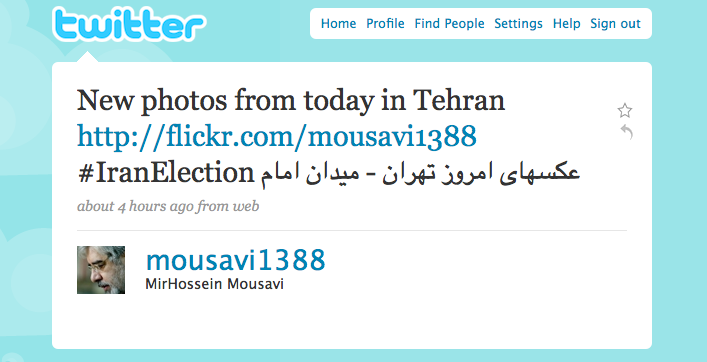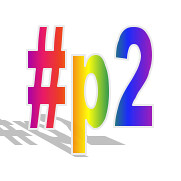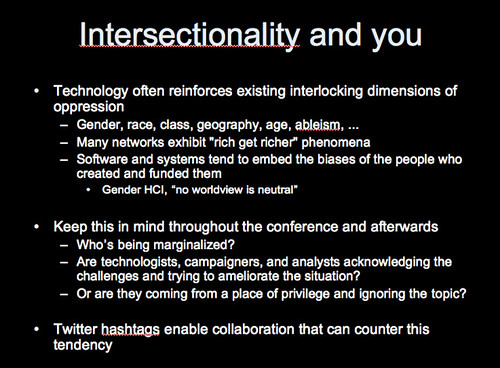Iran, censorship, social networks — and hundreds of thousands of people risking their lives
“I think the filters and the restrictions have been going on for so long in Iran that the experienced people are already prepared for this,” said Jon Pincus, a former Microsoft project manager and digital activist who works on projects promoting online freedom.
Iranians dodging internet censorship , Doug Gross, CNN
The OpenNet Initiative’s Cracking down on digital communication and political organizing in Iran is a good summary of the situation there, and their research report has a lot more details. Thus far, at least, the internet is largely routing around censorship: despite severe filtering by the government, Twitter, Facebook, Flickr, and YouTube have played huge roles in the protests.
The Mir Hossein Mousavi میر Øسین موسوی Facebook page is one important example, updated regularly with instructions and requests for help and information. Tuesday, when the sites hosting the “guide to cyber-warfare in Iran” were going down under DDoS attacks, they sent a link to a text version of this to all the supporters. This is a very efficient way to get credible information distributed broadly internationally, in easy-to-forward form — and even when Facebook is blocked in Iran, information can flow back into the country through whatever other channels are open.






